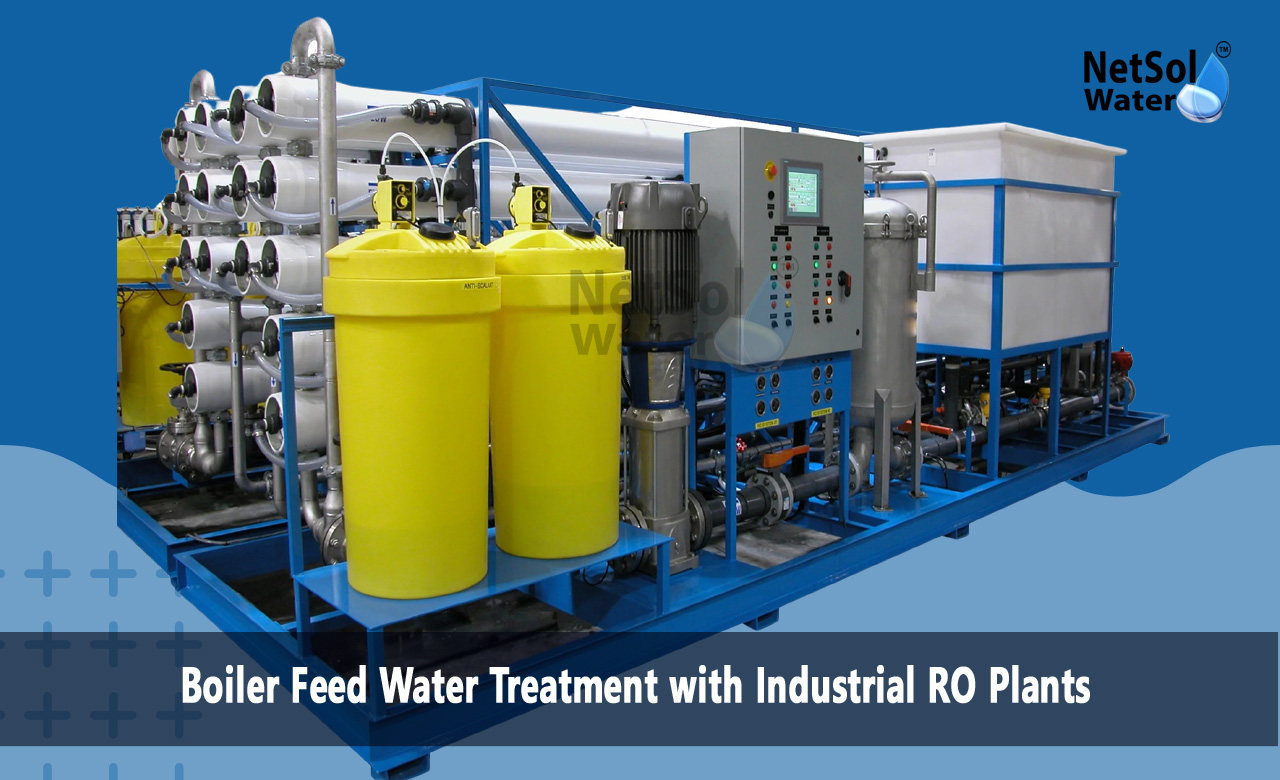Boiler Feed Water Treatment with Industrial RO Plants
Boiler feed water treatment ensures long term function. Boiler systems need clean water to perform. Impure water harms tubes and impurities can cause scale. Scale reduces heat transfer and poor heat transfer wastes fuel. Industry follows strict water standards. Meeting these standards needs strong treatment. Industrial RO plant manufacturer Netsol Water offers reliable solutions. Netsol Water builds strong RO plants to match industry needs. Netsol Water has deep expertise in water treatment. They deliver performance that meets rigour of boiler systems. RO removes salts iron, silica and many other particles. RO reduces risk of scale and corrosion. RO prepares water for high pressure boilers. Using RO makes feed water stable. Stable water cuts costs. Industrial RO plants need proper design and operation. Netsol Water leads this field and act as a leading industrial RO plant manufacturer. They guide clients through design installation and maintenance. Plants face changing water quality through seasons and sources. This makes a clear treatment plan more important. Netsol Water helps in every step from testing to operation.
Importance of Feed Water Quality
Feed water quality shapes boiler safety and efficiency. Poor quality water harms boilers. Let us have a look at some key aspects.
Scaling Control: Hard salts can build scale on heat surfaces. Scale blocks heat flow. Scale triggers high fuel use. Removing hard salts helps boiler work well.
Corrosion Prevention: Dissolved gases can erode metal. Corrosion can lead to leaks. Removing oxygen and carbon dioxide protects pipes. RO helps lower corrosion risk.
Efficiency Improvement: Clean water boosts heat transfer in drums. Better transfer cuts fuel use. Efficient heat makes steam fast. This step helps save cost.
How Industrial RO Plant Works?
A clear view of RO steps helps for design. RO plants need careful feed handling. Let us have a look at some process stages.
Pretreatment: Feed water needs cleaning from large solids. Filters and softeners clear sand and hardness. This step protects RO membranes. It makes RO last longer.
RO Membrane Separation: High pressure pushes water through semipermeable membranes. Water passes and leaves salts behind. This stage yields low salt water. RO membranes work to block impurities.
Post Treatment: Water from RO may need pH adjustment. Minerals can be added for balance. Polishing steps ensure final quality. This makes feed water stable.
Benefits of Using RO in Boiler Feed
Using RO delivers pure water for boilers. Pure water improves system life. Let us have a look at some benefits.
Consistent Purity: RO plants remove salts and particles each time. Consistency helps boilers run with stable water. This reduces risk of scaling and corrosion.
Energy Savings: Pure water cuts scale build up. Clean surfaces transfer heat well. Boilers need less fuel to reach steam. Energy use goes down.
Extended Equipment Life: Clean water stops damage to pipes and tubes. This lowers repair needs. Boiler life grows. This cut cost of part changes.
Maintenance Best Practices for RO Plants
Maintenance secures long term RO performance. Good care means steady feed water quality. Let us have a look at some tasks.
Routine Cleaning: Membranes can trap particles over time. Cleaning removes foulants. It restores flow. Regular cleaning keeps RO at peak work.
Monitoring Performance: Operators track pressure and flow every day. Any change can mean clog or leak. Early action stops big faults. This step saves time.
Membrane Replacement: RO membranes age with use. Replacing them at right time keeps quality high. This step prevents sudden faults. It keeps the plant run well.
Key Design Considerations
Good RO plant design meets boiler needs. Design choices affect water output. Let us have a look at some key factors.
Capacity Planning: Design must match boiler steam output. Under size can stress the system. Oversize can cost extra. A balanced plan cuts cost and ensures supply.
Material Selection: Components must suit water chemistry and pressure. Materials like stainless steel resist corrosion and last long. Proper choices cut repair needs and support steady work.
Automation and Control: A control system helps to run the plant smoothly. It adjusts pressure and flow as the feed changes. Automation gives alerts for faults. This helps avoid downtime.
Conclusion
Netsol Water makes boiler feed water treatment clear and strong. As an industrial RO plant manufacturer Netsol Water stands by every project. Clients find simple solutions that deliver pure feed water each day. Choosing Netsol Water gives peace of mind for long term boiler health. If you plan a new plant ask Netsol Water for a quote. As a leading industrial RO plant manufacturer they can guide, design and maintain your system.
Contact Netsol Water at:
Phone: +91-9650608473, Email: enquiry@netsolwater.com



